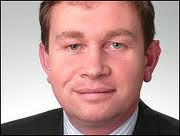I went out to the dump yesterday. Or the Recycling Centre as it’s now called. There was a line-up of at least twenty cars waiting to get into it, all with the same thought as ourselves: to get shot of the VAST accumulation of empty cardboard boxes and wrapping paper and old, no-longer-wanted electrical appliances. It was a bit like a ‘security’ check back in the bad old days: creeping forward, stopping, creeping forward again. Back then, after a hold-up of maybe half an hour, you’d approach a big sign saying ‘Don’t blame us for the delay in your journey: blame the terrorists’.
That wasn’t the sign at the Recycling Centre yesterday. The sign there said ‘Physical or Verbal Abuse of Our Employees Will Not Be Tolerated’, or words to that effect. It’s a sign you see quite a few places these days, and in some cases they’re needed. There are indeed people serving the public who would turn the most placid member of the public into red-eyed shrieking madness inside five minutes. But the Recycling Centre isn’t one of them. I don’t think I’ve ever been out there when I wasn’t helped in every way. Most of the time I didn’t even have to ask: one of the men would approach me unbidden and offer assistance. Since I’ve decided in my old age that I should compliment people if I truly believe they deserve it, I suggested to one of the men working there that the sign was surely unnecessary. Oh indeed it was, he told me. There are people who think it clever to be aggressive with men who work in conditions most of us would shrink from and who do their job efficiently and cheerfully.
Our entire society is built on the backs of people like these. People who work at what we’d consider menial jobs, who get badly paid and who suffer the sharp edge of any economic recession. The rest of us, working in jobs that are relatively well-paid and that we like, don’t know we’re living. As to respect, we readily offer deference to such as the Windsor family, people whose jobs are cushy and massively well-paid; and some of us then think it’s clever to berate those who perform a vital service in conditions that literally stink.
Maybe there’s a political party out there with a vision of a society with equality at its heart. If so, we should get ready to give them our vote in 2011.



















